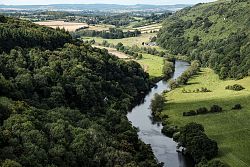

On 20 November 2023, a landmark ruling following a judicial review over the management of Costa Beck River found that the UK Government and the Environment Agency have failed in their duty to restore and protect waterways under Directive 2000/60/EC establishing a framework for Community action in the field of water policy (Water Framework Directive), and legislation made under it.
Two organisations that campaign for conservation, protection and sustainable management of UK waters, Fish Legal and Pickering Fishery Association, took the government to judicial review over the poor river basin management plan of the Costa Beck River in the Humber district, which resulted in degradation of water quality over the past few years.
Lawyers who represented the two organisations provided evidence in court that the Costa Beck is failing for fish due to sewage pollution as a result of the Yorkshire Water's excessive sewage discharges into the waterways, with Pickering treatment works discharging more than 250 times in 2020 and over 400 times in 2019. It was argued in court that the Government's Plan for Water, devised by the then Secretary of State for the Environment, Thérèse Coffey, was not implemented and designed to fail from the start, and the Environment Agency had failed to follow through with the proposed action against polluters.
Since the Plan for Water was published, it was heavily criticised by the Government's opposition, the House of Lords, as well as campaigners and lawyers who said that the plan is lacking and would not solve the problems facing the environment and water consumers, calling the Government "complacent" in dealing with water companies.
Following the review, the high court ruled that the Department for the Environment, Food and Rural Affairs (DEFRA), and the Environment Agency had failed in their duties to review, update and implement the measures to restore rivers and other bodies of water affected by pollution under the Water Framework Directive. The judge agreed that there is no evidence that the proposed programme of measures could achieve the plans' stated objectives.
This ruling is likely to open the door for other organisations to bring similar challenges for other river basin plans across the country, as the court found that the legal requirement to assess and identify specific measures to achieve mandatory water quality targets, such as controlling sewage pollution and tightening environmental permitting to protect the environment, had not been carried out.
A solicitor at Fish Legal, Andrew Kelton said: "This case goes to the heart of why Government has failed to make progress towards improving the health of rivers and lakes in England. Only 16% of water bodies – 14% of rivers – are currently achieving "good ecological status", with no improvement for at least a decade, which comes as no surprise to us having seen how the Environment Agency at first proposed, but then for some reason failed to follow through with the tough action needed against polluters in this case.
"The Upper Costa Beck is just one of 4,929 water bodies, but it is a case study in regulatory inaction in the face of evidence of declining river health."
He also added: "The Environment Agency and the Government have taken a high-level, generic - and effectively non-committal - approach to achieving targets when what was needed was a water-body-by-water-body plan of real action to stop ongoing damage.
"We hope this ruling will lead to actual environmental improvements, not only on the Costa Beck but on every other ‘failing’ river and lake across the country."